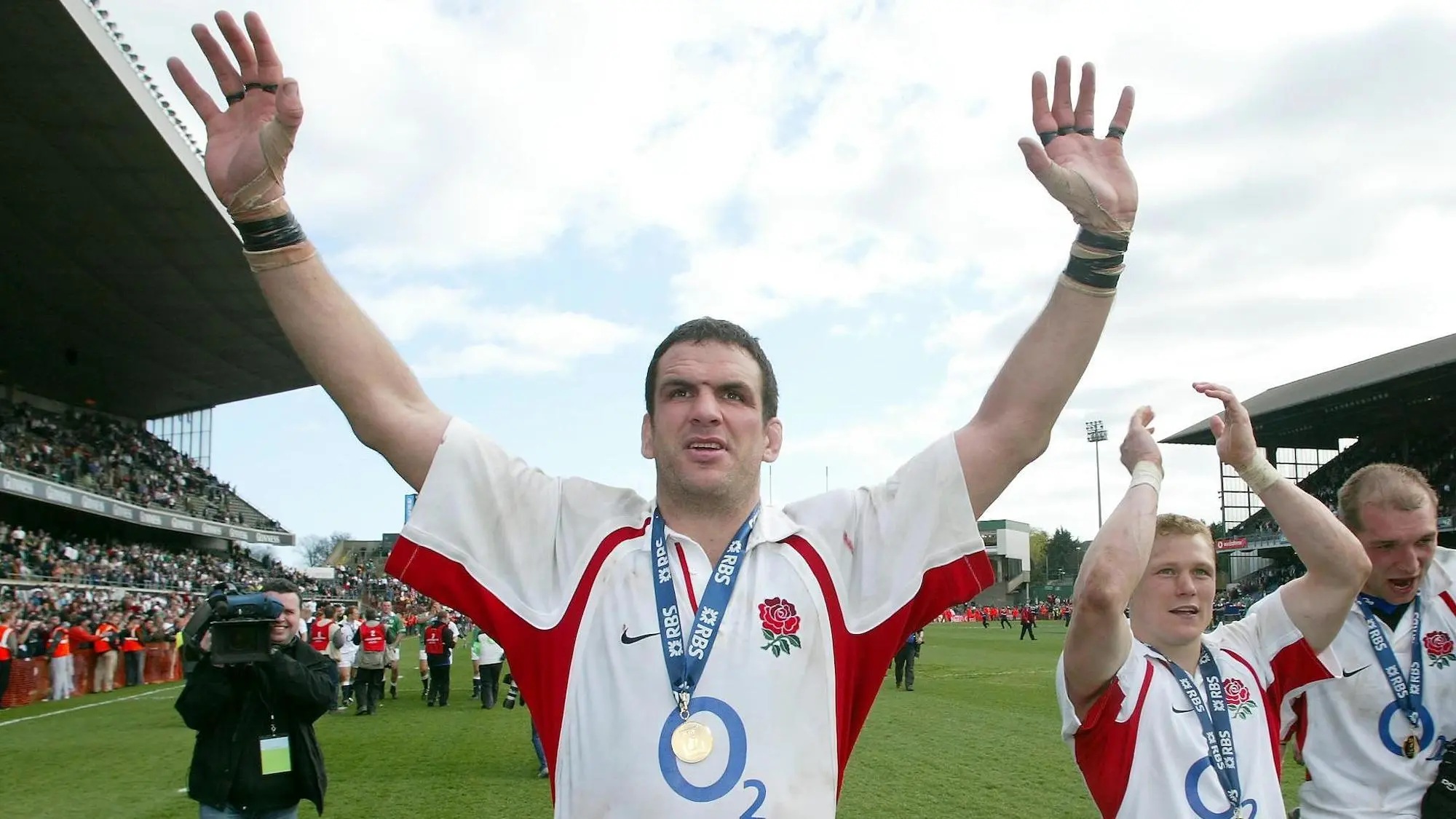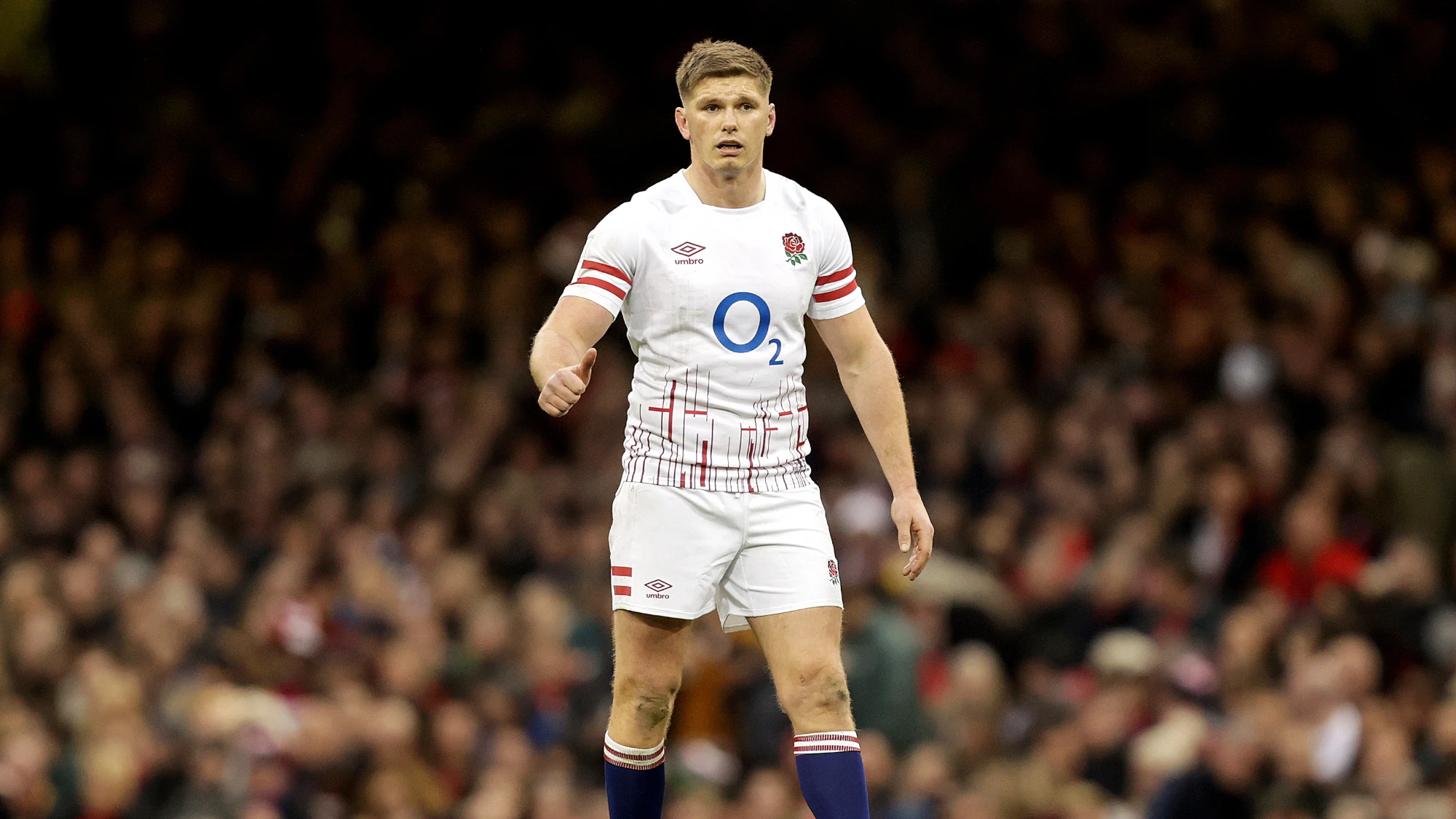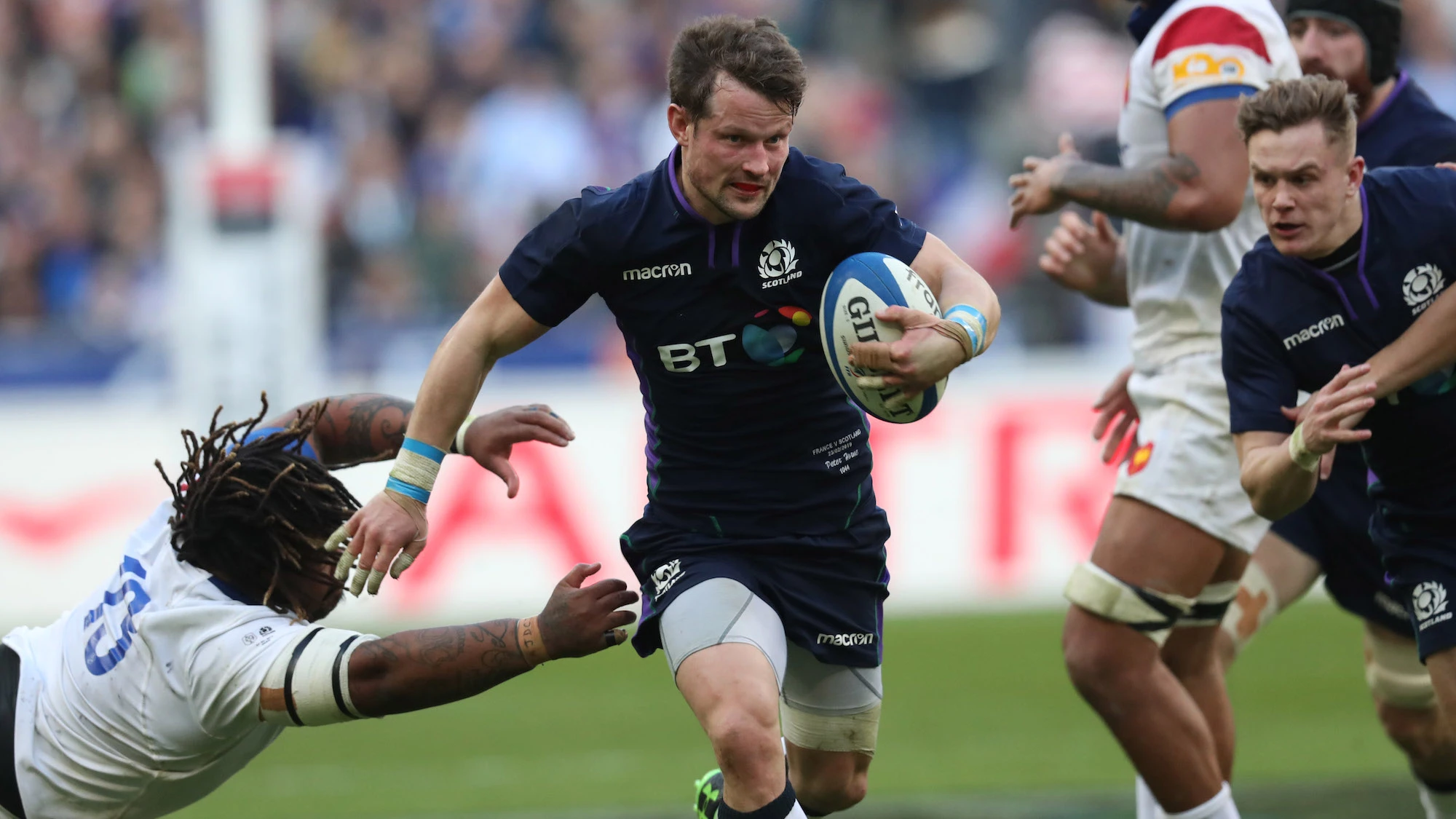‘Legend’ is a term bestowed on only the finest sporting majesty and for former England captain Martin Johnson, it certainly applies.
Johnson was a rock at the heart of England’s scrum for over a decade, playing 84 Tests between 1993 and 2003 across a period where his side won five Championship titles.
The second-row behemoth held the famous trophy aloft in both the Five and Six Nations formats, playing a part in Jack Rowell’s Grand Slam-winning team in 1995 before repeating those clean-sweeping heroics as captain in 2003.
To celebrate the Six Nations’ 20th anniversary, you can form your Greatest XV on the Guinness Six Nations app and choose from more than 150 players.
And with further triumphs in 1996, 2000 and 2001 combined with 37 appearances in Championship action, Johnson’s status as a Guinness Six Nations immortal became unequivocally confirmed.
Raised in Market Harborough, Leicestershire, after moving from Solihull as a seven-year-old, Johnson swiftly set about plying his trade on the rugby field after initially dabbling with life as an American footballer.
He played for Leicester Panthers as a tight end or defensive end but soon exchanged touchdowns for tries in the 1980s, as he was lured into spending two seasons in New Zealand – by former All Black Colin Meads – where he played for King Country.
Johnson’s performances even earned him a call-up for New Zealand’s Under-21 side as he toured Australia in 1990, but a return to England soon followed as the lock set about forging a reputation at Leicester Tigers.
Johnson had made his Welford Road debut in 1989 but came back with a bang the following year, establishing himself as a key protagonist in Tigers’ starting XV by 1992 and earning his maiden England call-up at the beginning of 1993.
His first outing in a Red Rose jersey saw England edge out a 16-15 victory over France in the Five Nations – Johnson’s solitary appearance in that Championship – but it was the following year where he emerged as a formidable international talent, as his fledgling England journey begun to unfold.
Johnson was called up as a replacement for Wade Dooley on The British & Irish Lions’ tour to New Zealand in 1993, playing the second and third Tests.
Sir Ian McGeechan’s side picked up a memorable 20-7 win in Wellington but succumbed to a 30-13 defeat in the series decider to lose the series 2-1.
But that touring experience in the famous Lions red proved invaluable in Johnson’s development, as he went on to play all four of England’s outings in Championship action the following spring.
The Red Rose were narrowly pipped to the title by Wales that year – Alan Davies’ men reigned supreme on points difference – but that Championship set the wheels in motion for England’s 1995 hegemony, where Johnson was once again an ever-present as Rowell’s team conquered all.
Johnson’s influence in that famous No. 4 jersey was stamped all over England’s wins in Dublin and Cardiff, as his side also toppled France and Scotland at Twickenham to make it three Grand Slam titles in the space of just five years.
And that majestic 1995 clean sweep was merely a precursor for two years of England success, as Johnson also played all four matches the following season to help England retain their crown.
England lost their Championship opener in Paris but Johnson’s solidity helped them bounce back in style, beating Wales, Scotland and Ireland to make the second row a two-time Championship winner by the age of 26.
Johnson was once again an ever-present in the 1997 and 1998 Championships, as England finished second behind France on both occasions.
And during that time Johnson also captained the Lions on the famous Tour to South Africa in 1997, as McGeechan’s men secured a thrilling 2-1 Series triumph after taking an unassailable lead from the Tests in Cape Town and Durban.
England won that Championship as Johnson watched on from the sidelines, but the No. 4 bounced back in style the following year to lead his country in the format for the first time in his career.
And despite missing the postponed final game against Ireland – that dashed England’s hopes of Grand Slam glory – victories engineered by Johnson’s captaincy over Wales, Italy, Scotland and France were enough to clinch the crown.
Johnson’s reputation as a Guinness Six Nations Captain Marvel was cemented, writing his name into a long list of players to have led their men to Championship hegemony.
Johnson’s England finished second behind France in the 2002 Championship as the lock once again played four of England’s five contests, but it was in 2003 where he took that almighty leap into the terrain of rugby greatness.
Captain fantastic Johnson led England to a brilliant Grand Slam triumph, the second of his career and ending an eight-year wait to replicate those heroics of 1995.
Johnson helped England to wins against France, Wales and Scotland, missing the 40-5 triumph over Italy but returning for the Grand Slam decider in Dublin where his side emphatically toppled Ireland 42-6.
And as has become storied in England, Johnson followed that Guinness Six Nations nirvana by scaling the heights of the 2003 World Cup in Australia, where Jonny Wilkinson’s famous, last-gasp drop goal saw Sir Clive Woodward’s men conquer the globe.
That capped off Johnson’s stunning rugby career, retiring after that Sydney triumph as a giant of the game who indelibly wrote his name into Guinness Six Nations – and rugby – folklore.
He returned as England head coach less than five years later and led England to yet another Championship title in 2011, their first in eight years.
It is 17 years since Johnson drew the curtain on his playing career but his legendary status, and legacy, continues to stand the test of time.



